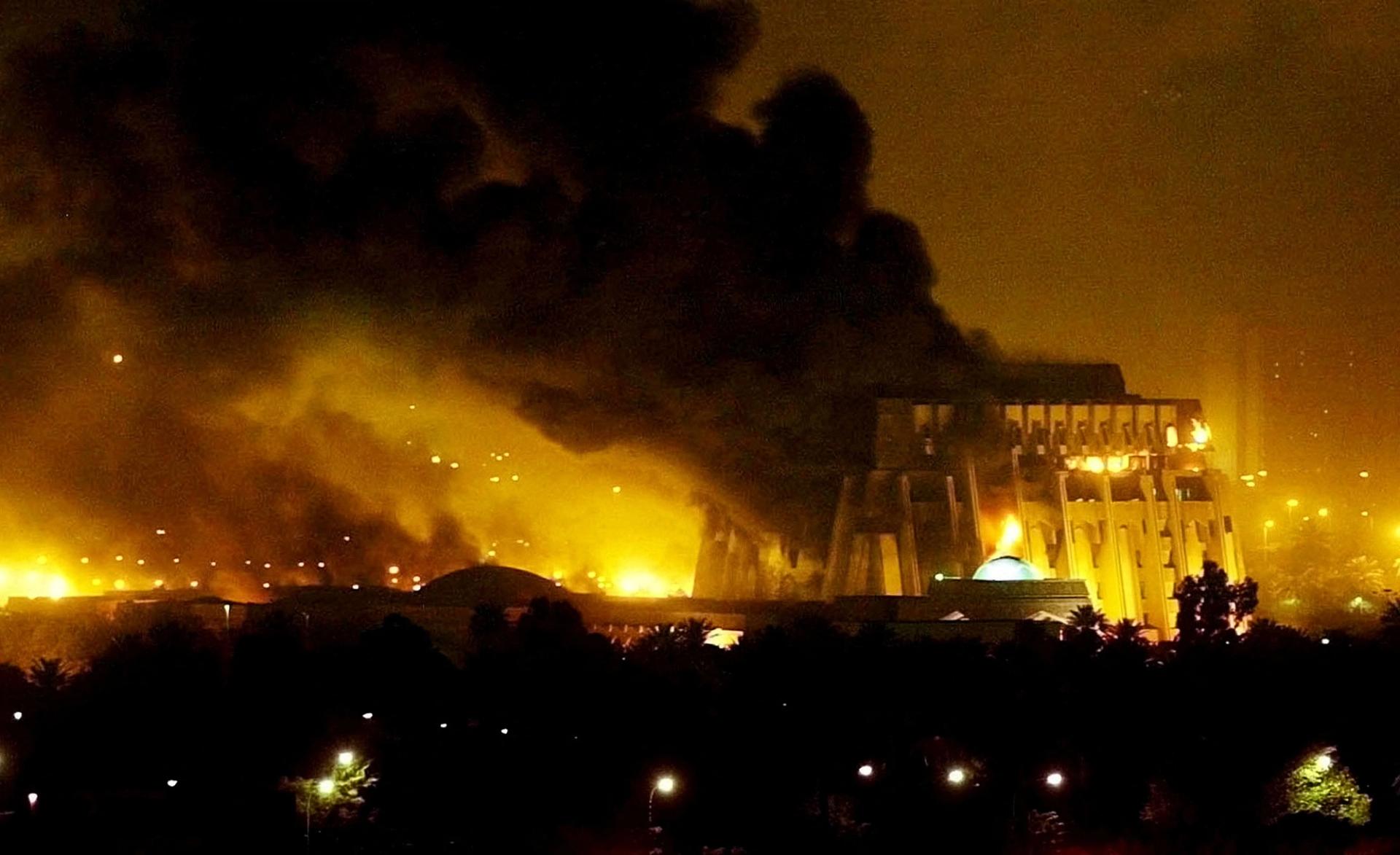The News
China slammed the U.S. on Monday — the 20th anniversary of the invasion of Iraq — for its war there, criticism that came as Chinese leader Xi Jinping visited Russia.
“Facts have proved that talk of a ‘rules-based international order’ without regard to the U.N. and international law is nothing but an excuse for the law of the jungle,” Ministry of Foreign Affairs spokesperson Wang Wenbin said.
In this article:
Know More
Wang told reporters that the decision to invade Iraq was “based on a lie,” adding that the subsequent political destabilization and years of conflict warranted “deep reflection by the U.S. and vigilance from the entire world.” He added that governments can avoid such acts of “bullying” by keeping the United Nations at the center of the international system.
“Countries need to jointly say no to hegemonism by taking firmer and stronger action against it, to make sure that never again will a country’s sovereignty be violated on the ground of baseless lies and allegations, and never again will any country be bullied and denied its right to development,” Wang said.
While China had opposed the Iraq war, the country had little global influence compared to today, with officials remaining notably silent on the consequences of the war for years.
But Wang notably had a change of tone when asked about China’s role in Russia’s war in Ukraine, saying that China will uphold an “objective” position on the crisis while condemning those that have economically punished Russia and its supporters.
“We always believe that political dialogue is the only way to resolve conflicts and disputes,” he said. “Fanning the flames, fueling the fight, unilateral sanctions, and maximum pressure would only escalate tensions and make matters worse.”
Quoteworthy
“The right of all countries to independently explore their democratic institutions and development paths must be earnestly respected. Facts have proven time and again that a country’s democratic institution and development path cannot be imposed externally, but explored and developed by the country’s own people. Peddling one’s own model of democracy in the name of democracy is in itself undemocratic.” — Wang Wenbin
Step Back
Relations between the U.S. and China have continued to deteriorate in recent weeks, with Xi’s visit to Russia adding to tensions as U.S. officials warned Beijing to not actively support Putin’s deadly campaign in Ukraine by providing lethal force.
Anti-U.S. rhetoric by both Chinese officials and state media has meanwhile become more prominent.
Semafor previously reported that Chinese social media has been flooded with news about the East Palestine train derailment, with both social media users and state media accounts pushing conspiracy theories that the U.S. drove a controversy over Chinese spy balloons to distract from the ecological disaster.
The Chinese government also rolled-back responsibilities in joint efforts to combat the drug trade after former U.S. House of Representatives Speaker Nancy Pelosi visited Taiwan last August, notably ceasing efforts to crack down on companies that produce chemicals needed to synthesize fentanyl. Chinese state media launched a campaign to characterize China’s efforts as over-generous, portraying the U.S. opioid crisis as a result of American decadence and an unregulated pharmaceutical industry.
The View From Germany
Germany, although not a permanent member of the U.N. Security Council, had been one of the NATO members most vocally opposed to the Iraq war, and German media has been reflecting on that sentiment 20 years after the invasion.
State broadcaster Deutsche Welle on Monday published a series of reflections and analyses tied to the Iraq war, outlining the extent of civilian casualties, the breach of international law, and the narrative — ultimately proven false — used to justify the invasion of Iraq harboring weapons of mass destruction.
One German expert interviewed by DW said that the Iraq war and its fallout was perhaps the reason why many countries, notably Brazil, South Africa, and India, remained hesitant about joining U.S. efforts defending Ukraine against Russia.
